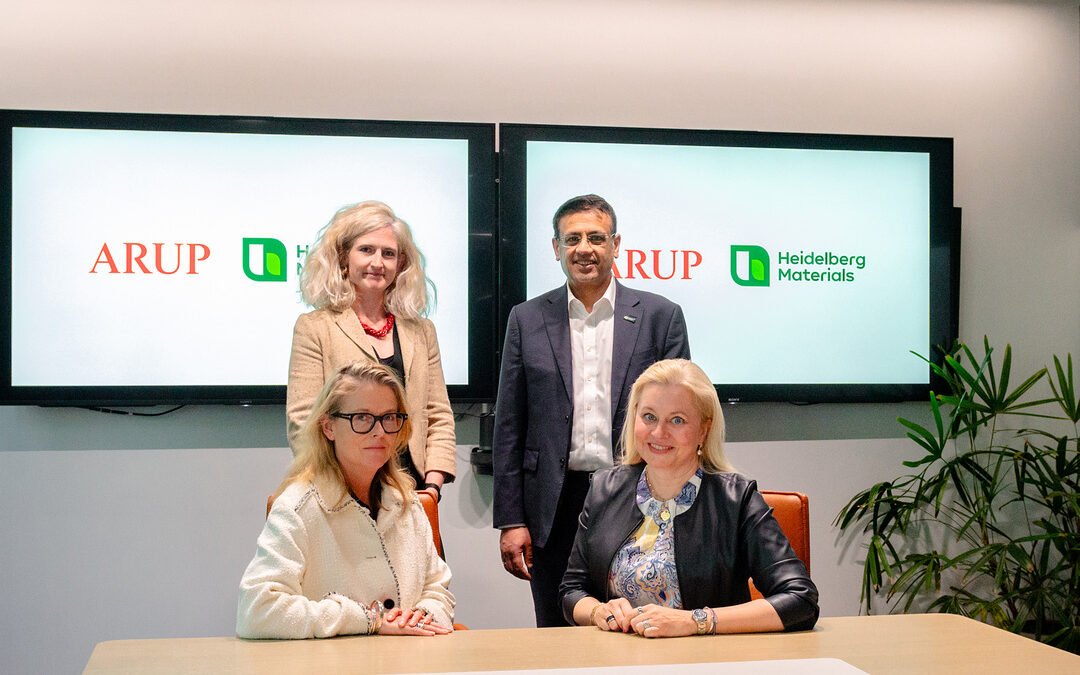Heidelberg Materials Teams Up With Arup to Decarbonize Cement and Concrete
Heidelberg and Arup to accelerate cement decarbonization with breakthrough carbon capture project in Norway.
Germany-based Heidelberg Materials and British engineering consultancy Arup signed a memorandum of understanding on Monday to accelerate the decarbonization of the built environment by scaling up carbon capture and storage in cement and concrete production.
The agreement aims to leverage Heidelberg Materials’ industrial-scale CCS project in Brevik, Norway — the first of its kind in the global cement sector — as a model for broader deployment of carbon-captured materials across Europe and beyond.
Pioneering Project in Brevik
The Brevik facility will begin operations next month as the cement industry’s first large-scale CCS plant. Heidelberg Materials will use the captured carbon dioxide to launch evoZero, a line of carbon-captured cement and concrete. This step is seen as critical to lowering emissions from cement, one of the most carbon-intensive building materials.
“The Brevik project demonstrates that industrial-scale carbon capture in cement is not just technically feasible, but commercially viable,” said Dr Katharina Beumelburg, chief sustainability and new technologies officer at Heidelberg Materials. “Working with Arup allows us to extend this impact across the construction value chain.”
Strategic Research and Technical Cooperation
Under the MoU, the companies will collaborate on technical analysis, joint research, and feasibility studies exploring how CCS-enabled cement and concrete can be integrated into sustainable building practices.
The partnership builds on a prior collaboration launched in November 2024, which examined the environmental benefits and market potential of carbon-capturing cement products.
“Reducing emissions from hard-to-abate sectors like cement is vital if we are to meet global climate targets,” said Dame Jo da Silva, chief sustainable development officer at Arup. “Heidelberg Materials’ leadership in CCS creates new opportunities to rethink how we decarbonise the built environment.”
Critical Sector for Climate Action
Cement and concrete are responsible for a significant portion of global CO₂ emissions, and experts see CCS as one of the few viable pathways to achieving net zero in the sector without altering the material properties that underpin modern construction.
Heidelberg Materials and Arup said their collaboration aims to improve understanding of CCS’s role in delivering low-carbon infrastructure while supporting regulatory, economic, and technical innovation.
The companies did not disclose the financial terms of the partnership or specific project timelines beyond the Brevik facility’s June 2025 launch.
Also Read:
India Launches 1st Cluster of Carbon Capture Testbeds in Cement Sector
Nirmal Menon
Related posts
Subscribe
Error: Contact form not found.


